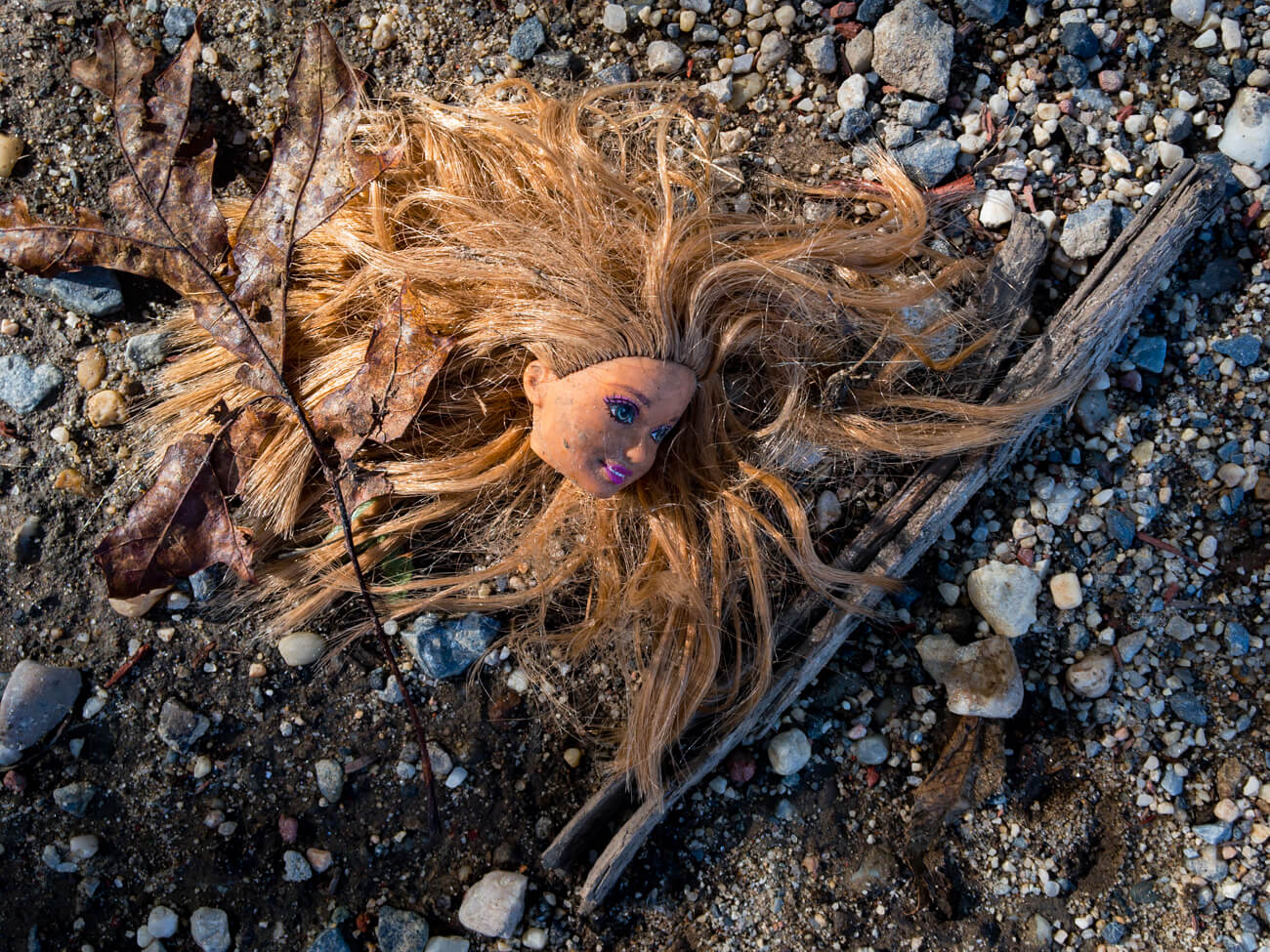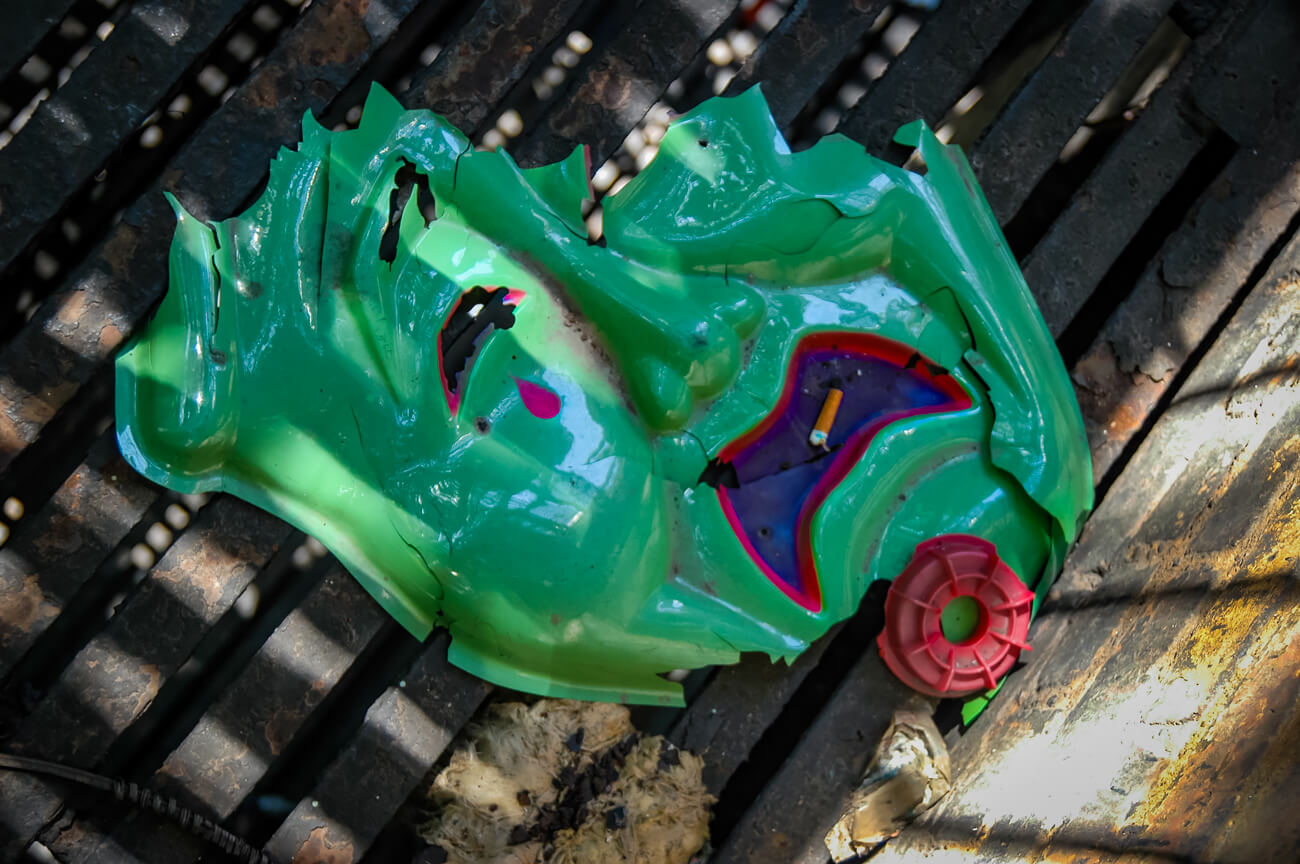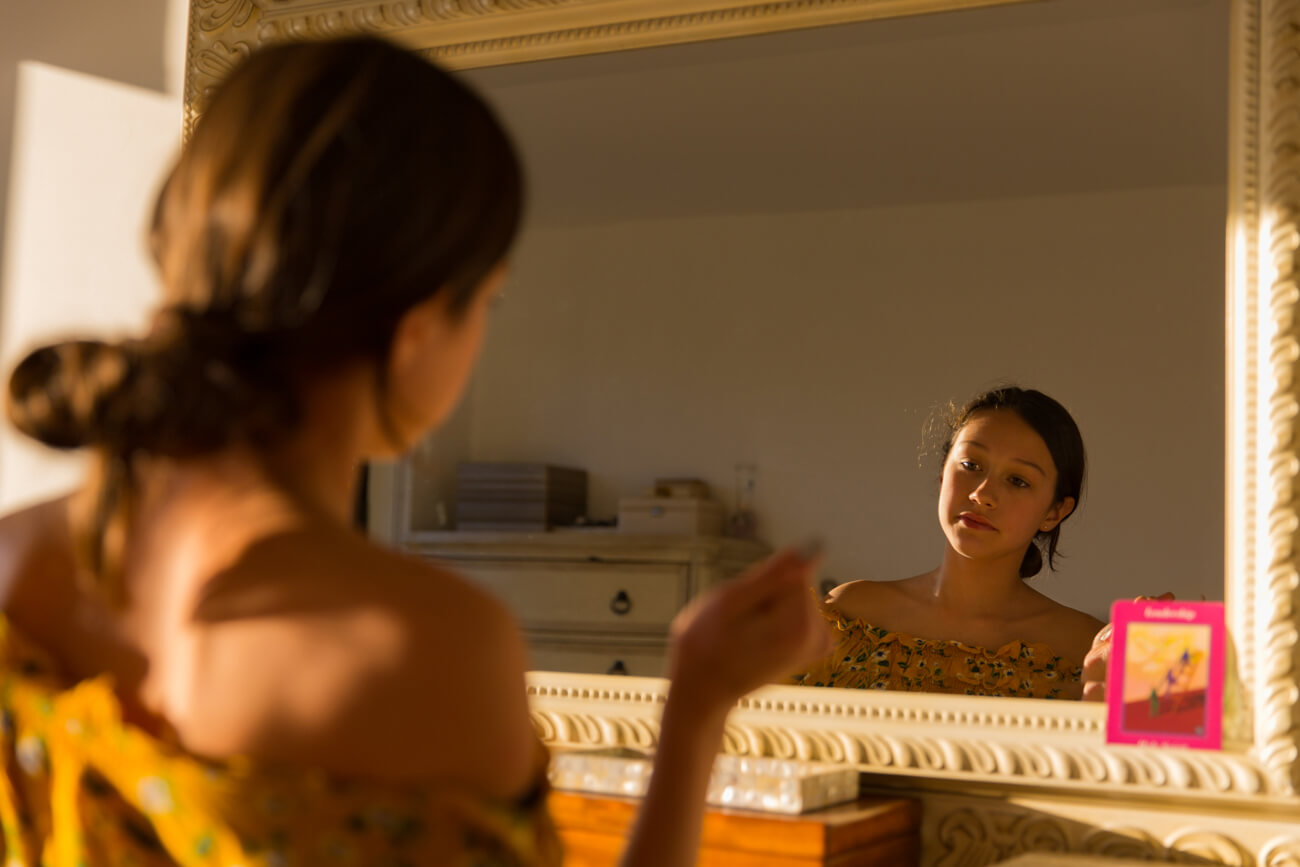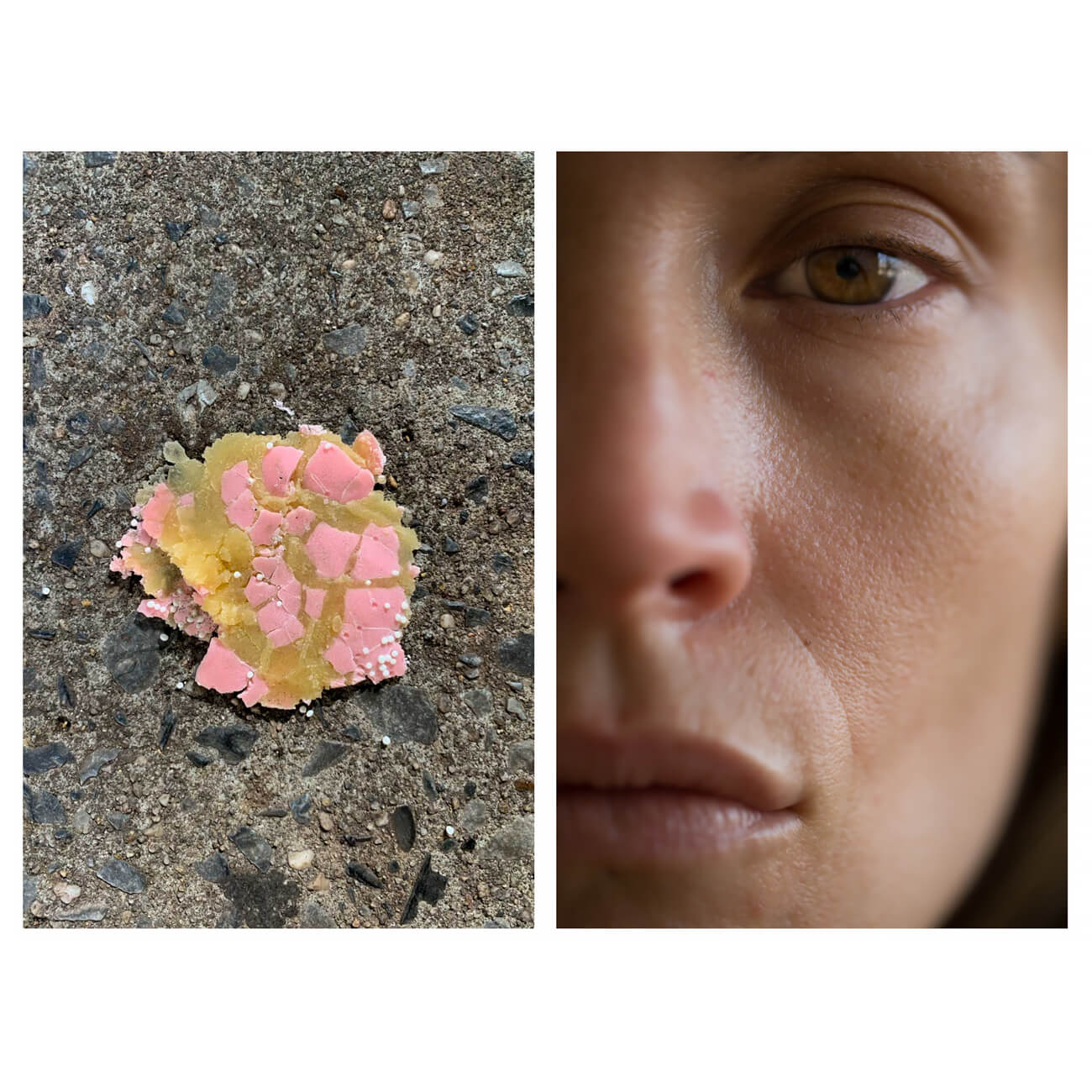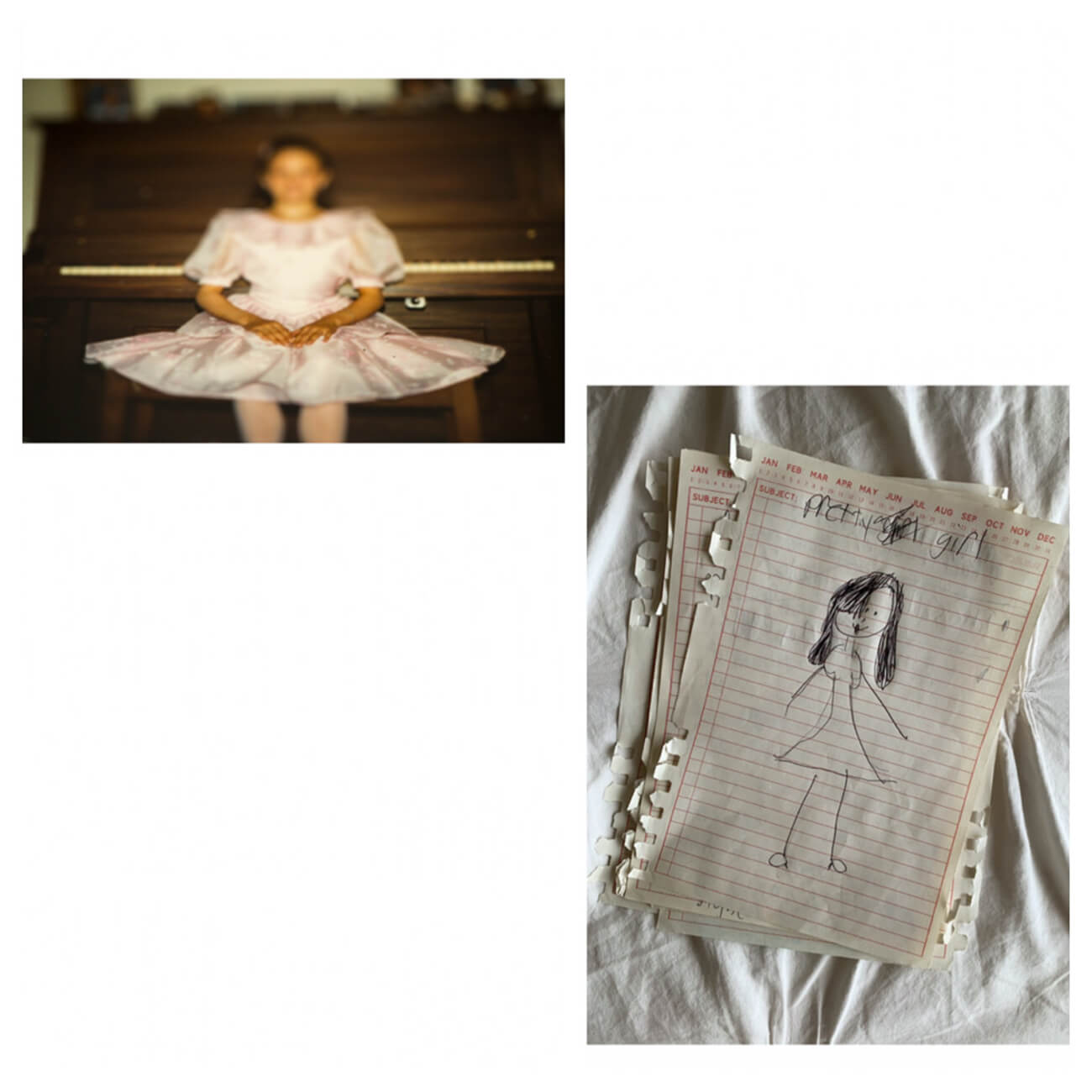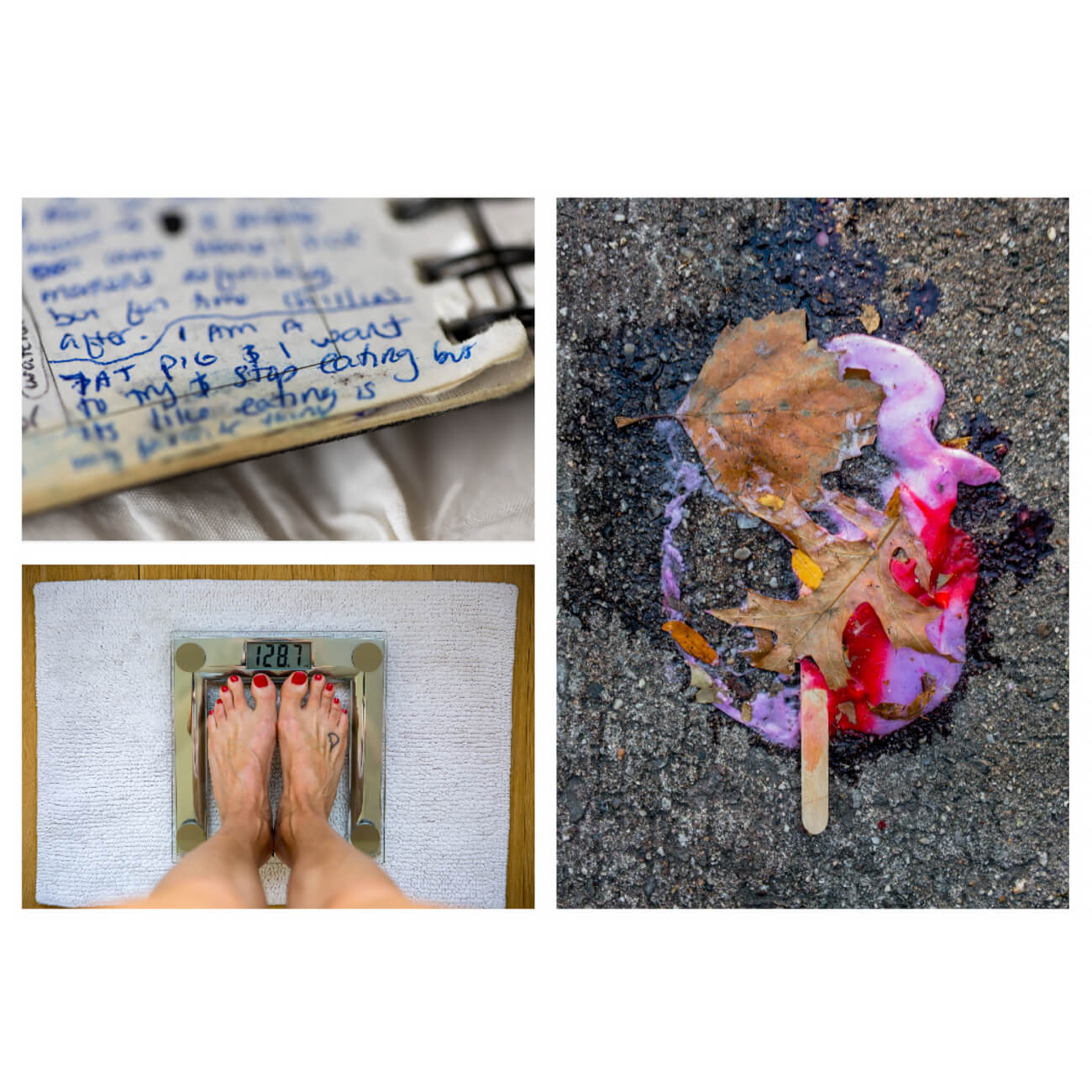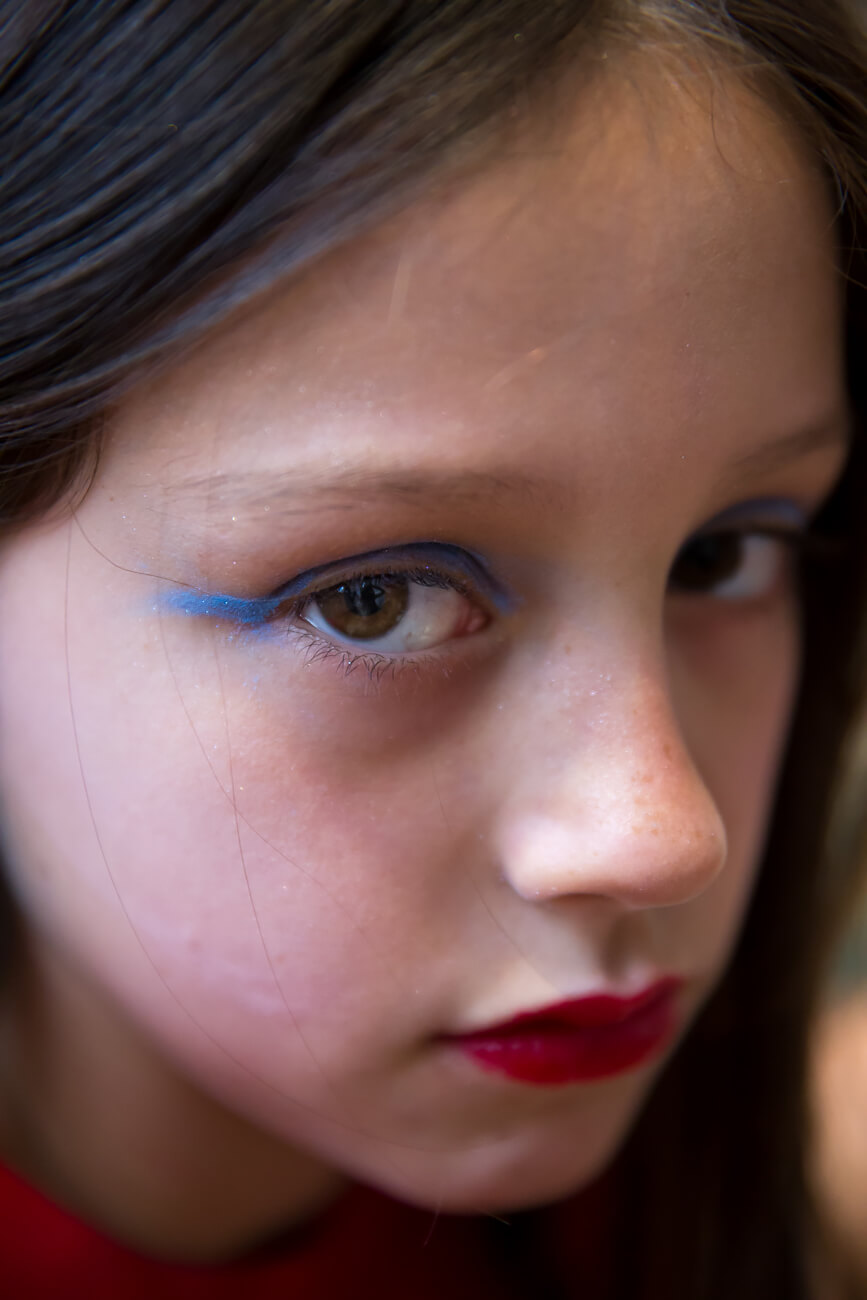''As I raise a young girl while attempting to age naturally in a beauty-obsessed world, I long for the freedom that
comes with unlearning. This unraveling of false teaching is my personal challenge, this work the vehicle by which I
am traveling the course.''- Jamie Schofield Riva
Through conceptual imagery, intimate portraits, and reflections in writing from a wide variety of women and girls ages
13-81, artist and former actor and model Jamie Schofield Riva presents an in-depth exploration of what it's like as a
girl trying to navigate a world full of ''preconceived notions of what it means to be a woman.'' Her selection of images
presents an assessment between generations of the intersections between cultural and social conditioning and
messages about the female gender, and considerations of the implication of the stereotypes of femininity.
An interesting aspect to Riva’s photographic approach was to combine photographs of lost objects in the street with
portraits. She writes in her essay for the book that this alignment ''...mirror[s] the many ways women lose their sense
of identity as they maneuver through life as a female.'' These thrown away items symbolically represent the unrealistic
expectations and definitions of self that the female-gendered can accept or discard. She continues, ''The discarded
items offer the opportunity to question and reflect upon the desires women abandon to conform to subliminal ideals
and pressures as we navigate the culture we live in.''
There are several portraits of her daughter included in the book, as well as writing, and Riva shares how assessing
this project through the lens of a mother contributed to some of the conceptual shifts as she immersed deeper into
the work. ''This work began as a personal journey to discover a way back to the person I was before I learned how
the world saw me. But as time progressed, I realized that the larger mirror was my own daughter, and the bigger
concern was how to raise her with awareness.''
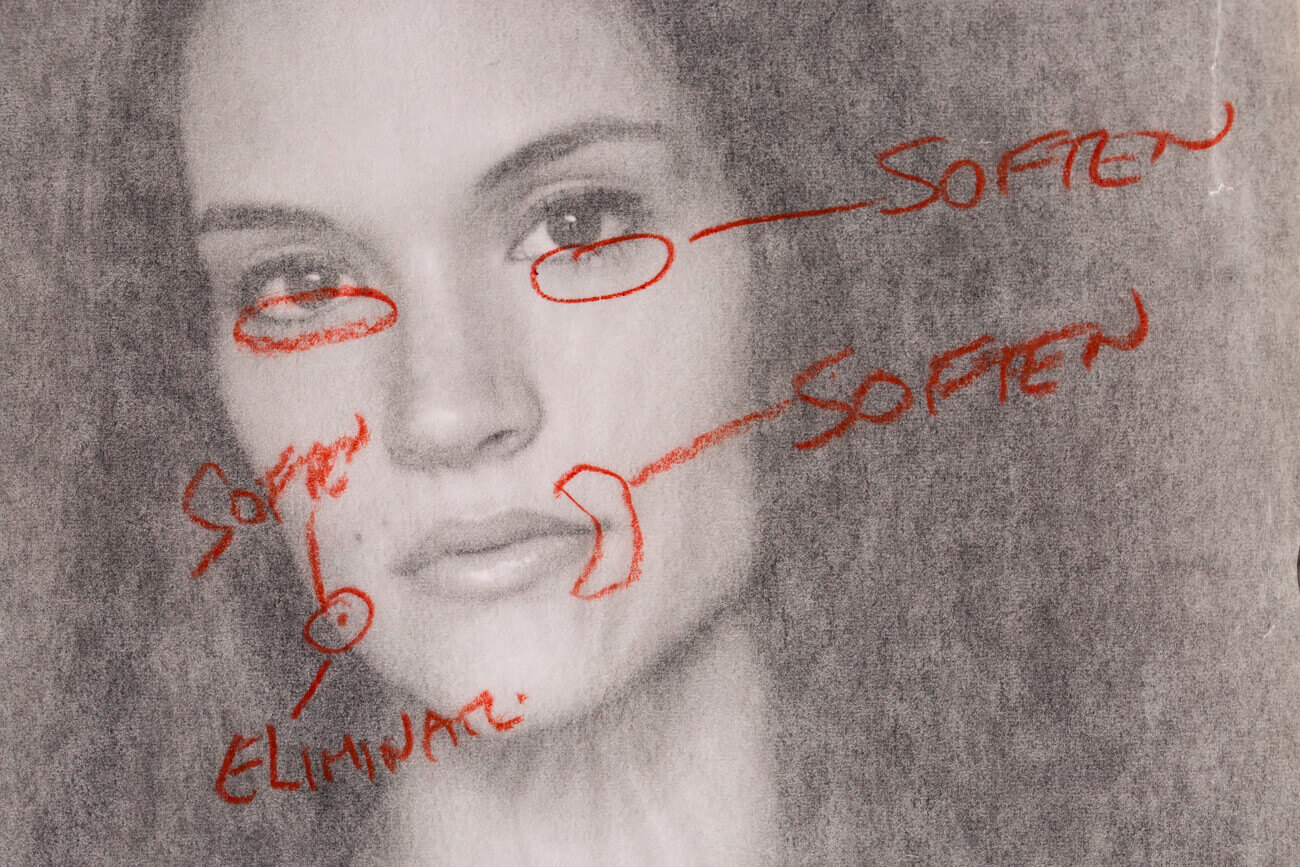
The work reveals an honest look at some of the conditioned and subliminal ways social normalization in cultural
messaging is absorbed. Riva reflects on the ''synchronicities'' she saw between some of the images of herself with
the photographs she was making of her daughter. The book also includes photographs of Riva's diary, written when
she was about the age of her own daughter now, and the content of some of the excerpts invites the reader to consider
how some of the toxic expectations and ''beauty standards'' relate to self-image and definition of self at the very stage
of life when those values are being formed.
An insert mini magazine of archival magazine tears and photographs from her years as a model and actor also provide
a different and very personal examination of the impacts of stereotypical messaging through continual exposure to
unrealistic ideals that recur through vehicles such as social media, and the advertising and fashion industries.
Rania Matar, an artist, educator, and Guggenheim fellowship award winner contributed a reflection for the book, and
she discusses the ironies and questions Riva's photographs consider. Matar writes,
''At the same time as we tell girls
today ‘you can be anything you want to be’ and we raise them to be strong and independent women, we also expect
them to look ‘perfect,’ to dress and behave according to standards that have objectified women for as far as we can
remember, and at the same time, we take away some of their most basic rights: the freedom of choice -in matters of
reproduction in this country, and in matters of presentation and dress in others. How are girls today supposed to
navigate all those contradictions?''
Another one of the women who provided commentary for the book, Maryanna FitzGerald, works in the construction
industry and she discusses how unhealthy cultural messaging is normalized and absorbed by women. She writes,
''Jamie Riva’s thought-provoking photography in Girlhood: Lost and Found has opened my eyes to how I’ve grown
accustomed to creating a balancing act of displaying my abilities yet subconsciously conforming to what is desirable
of me as a woman.'' The photographs and commentaries look at how roles and expectations affect confidence and
self-esteem, and spill into both the personal as well as professional realms.
The book's foreword was written by photographer Elinor Carucci who first met Riva 17 years ago when she worked
as the photographer on a shoot for New York magazine. Riva was the model. In her essay she considers the way the
metaphorical and literal lens is turned on women, whether in the context of fashion, culture, or the art world's historic
male gaze. In her essay she writes,
''Are we trapped in an endless cycle, still making ourselves as attractive as we can because we want to? Have to?
Must? Is anything really changing in women’s highly complex love-hate relationship with their appearance? What is
really lost and what is really found for us?''
The book also features commentaries from artist and filmmaker Laurie Simmons, renowned actor and musician Jill
Hennessy, founder of wellness platform MWH Melissa Wood-Tepperberg, Trish Barillas, an anxiety coach, author,
and mental health advocate, Luna Riva and Sergio Riva, the artist’s daughter and son, among others. The book
concludes with two essays addressed to Riva entitled A Love Letter to my Daughter by Maureen Schofield, and A
Love Letter to my Niece by Coe Fauteux.
About the artist:
Jamie Schofield Riva is a documentary and fine art photographer based out of New York City. She received a BFA
from NYU’s Tisch School of the Arts and studied at The International Center of Photography. In May of 2021, her work
was projected onto the Brooklyn Bridge as part of Photoville and The Dumbo Improvement District’s unique exhibition
''At Home Heroes: An Homage to Parenting Through a Pandemic in NYC.'' Most recently she has had work shown in
the outdoor exhibition ''My Park Moment'' in San Francisco, which honored the joyful and healing experiences created
by spending time in the great outdoors put on by Photoville in collaboration with Partnership for the Presidio and the
Golden Gate National Parks Conservancy.
www.jamierivaphotography.com
@/j.s.riva
About the contributor:
Elinor Carucci is a fine art photographer with work included in many solo and group exhibitions worldwide as well as
publications internationally. Her work is in the collections of MoMA, The Jewish Museum, the Brooklyn Museum and
many others. She was awarded the ICP Infinity Award, The Guggenheim Fellowship and NYFA in 2010, and published
four monographs to date. Carucci teaches at the graduate programs of photography at The School of Visual Arts and
is represented by Edwynn Houk Gallery.



